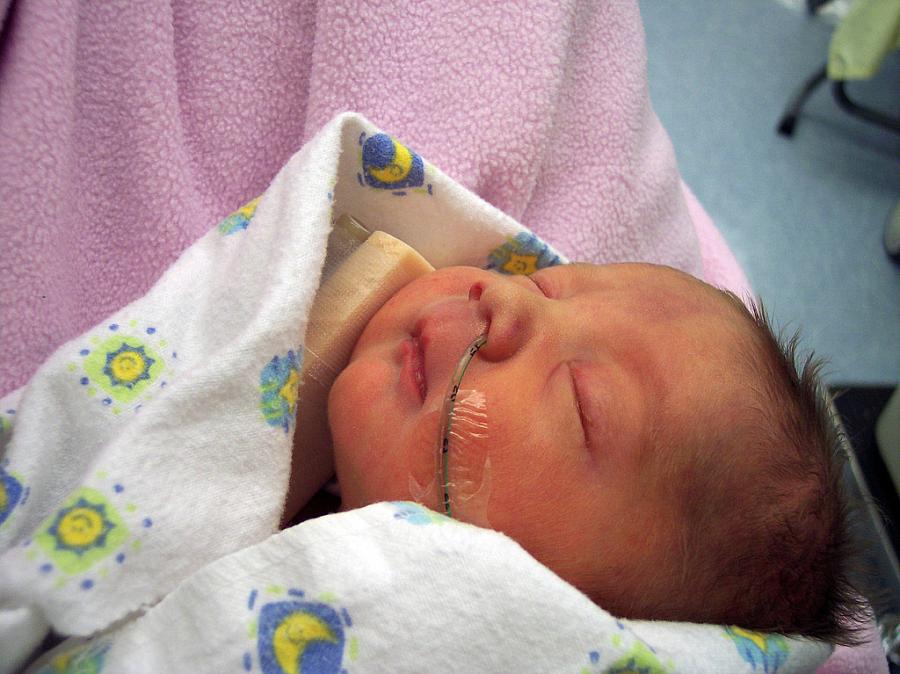Sleep Should Be a Priority for Patients, Especially in the Pediatric Unit

I had the misfortune of caring for a sick child recently in the hospital, and I kept thinking about Dr. Darshak Sanghavi's provocative piece about sleepy medical residents in The New York Times Magazine.
Not because any of the half dozen medical residents we saw seemed sleep-deprived. Far from it. We were the only ones suffering from a lack of deep, restful, prolonged sleep, and the situation only worsened by the day. So I am now hoping for an intrepid reporter to take a similarly critical look at whether hospitals are doing an adequate job of responding to their patients' most basic needs.
Sanghavi ultimately concluded that overworked residents aren't the cause of the myriad medical errors that occur in hospitals and clinics. He writes:
About 98,000 people die every year from medical errors. Some of those mistakes are made by doctors whose judgment has been scrambled by lack of sleep. But fixating on work hours has meant overlooking other issues, like lack of supervision or the failure to use more reliable computerized records.
I would add to this list: the inability of hospitals and medical staff to make sure their patients are resting well.
Consider that a child may sleep as long as 12 hours in a night and take two or three hour-long naps during the day. If fully awakened, she could struggle for an hour before settling down again. But what if she has to be awakened every few hours to check vital signs, then again to administer medication, then again by a janitor wanting to unload the clanging metal hamper? The amount of good sleep has been cut to a small fraction of what her body needs. Over a week, that can start to have debilitating effects that manifest themselves in ways that rival the underlying illness.
We heard repeatedly at the hospital about "clustering care," but there never appeared to be a plan for the full arc of the hospital stay that would take into account the need for sleep. The hospital appeared to have gone to a great deal of trouble and expense to sound proof the rooms from the outside, from each other, and from the hallway, but all this effort was undone by stacking patients two to a room, while at least a dozen rooms remained empty, insuring that neither patient would have an uninterrupted sleep. Alarms would sound loudly in the room for any minor malfunction in the equipment, even though nurses were carrying devices that told them each time an alarm had been triggered. And then there was the constant flow of people in and out of the room, each dragging a rattling, jangling, infant-startling cart or device and some of whom seemed a little unsure of why they wandered into the room in the first place.
If it weren't for a few compassionate nurses willing to work with us, we might still be in the hospital as I type. Instead, we were able to at least steal a few longer stretches of sleep by begging them to group vital sign checks and medication, to keep janitors out of the room when the lights were off, and to generally try and respect the healing power of rest.
At one point, when a nursing assistant banged open the door and went over to the bed to take a pulse reading, we asked if we could call her at the end of the nap. "There's plenty of time for her to sleep," she said.
Having reported inside of hospitals for nearly two decades and having been a caregiver in hospitals, I can say that her sentiment is part of a general lack of understanding. When a small, vulnerable child is sick, after getting the right diagnosis and getting the right medicine, the next most important element in recovery is sleep. And hospitals are not taking responsibility for that. It's a missed opportunity for hospitals. It could be a great opportunity for a richly reported health story.
Comments or questions? Post them below or write askantidote@gmail.com. You also can follow @wheisel on Twitter.
Photo credit: Mattman4698 via Flickr

